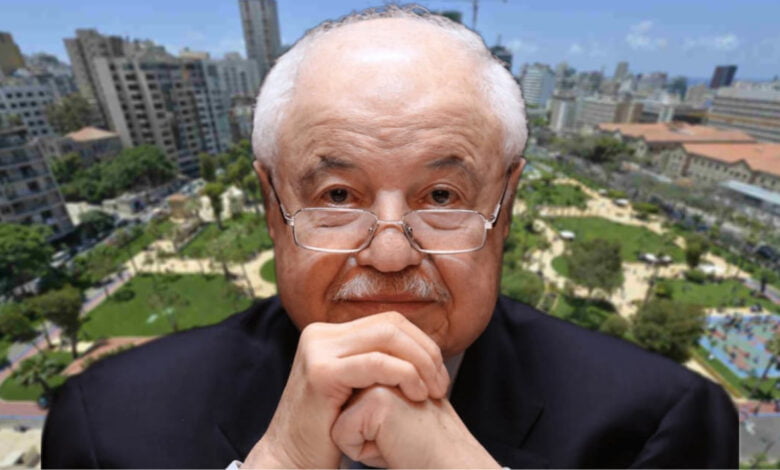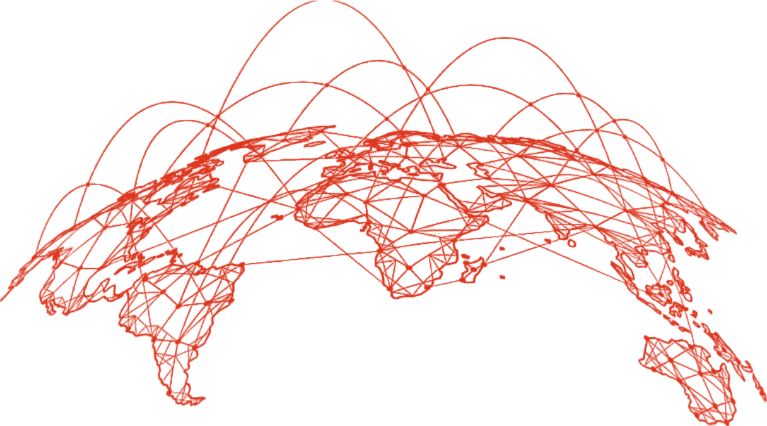
In an era defined by rapid technological advances and shifting economic landscapes, the wisdom of seasoned leaders like Talal Abu-Ghazaleh offers invaluable guidance for professionals and entrepreneurs alike. Known for his pioneering work in intellectual property, education, and the digital domain, Abu-Ghazaleh’s journey is a testament to the power of resilience, innovation, and foresight in crafting a successful path through the complexities of modern business.

Embracing Adversity as a Catalyst for Excellence
One of Abu-Ghazaleh’s most compelling insights is his perspective on adversity. He believes that challenging circumstances can serve as a potent catalyst for personal and professional development. “I believe that I was lucky to have suffered. Some people don’t realize that in suffering there is great potential,” he reflects. This outlook is not just about surviving adversity but using it as a springboard to achieve higher standards of excellence.
The Knowledge Revolution: A New Paradigm of Wealth
In Abu-Ghazaleh’s view, we are at the cusp of a knowledge revolution that redefines the foundations of economic power. “The foremost challenge is that of the knowledge revolution. Economic power will depend on creativity and innovation,” he states, highlighting the shift from traditional resources to knowledge as the new cornerstone of wealth creation. This vision places intellectual capital at the heart of economic and social development, underscoring the critical role of innovation in navigating the future.
Human experience throughout the ages has been enhanced through learning, information and communication
Talal Abu-Ghazaleh: Speech on the World Bank Video Series, Amman, Jordan, January 06, 2004
Bridging the Digital Divide
Talal Abu-Ghazaleh champions the fight against the digital divide as both a moral obligation and a vital economic goal. Highlighting the gap between the digitally privileged and those left behind, Abu-Ghazaleh views digital literacy as key to unlocking societal and individual empowerment. His call for universal internet literacy, especially within the Arab region, is framed as a right in the modern era, aiming for everyone to skillfully navigate and contribute to the digital realm.
Abu-Ghazaleh envisions a world where digital inclusion fosters economic growth and improves lives, stressing that the journey from mere information access to wisdom can revolutionize societies. He believes that addressing this divide requires collaborative efforts across sectors to ensure that digital benefits reach all corners of society, advocating for improved policies, innovation, and infrastructure to make digital literacy and participation a reality for everyone.
Internet literacy must become universal within the Arab world
Talal Abu-Ghazaleh: Speech at the First Arab Conference on Arabizing the Internet, Amman, Jordan, April 01, 2001
Technology and Innovation: The Exponential Drivers of Change
Talal Abu-Ghazaleh views technology and innovation as pivotal in driving societal change, asserting their exponential impact accelerates advancements, reshaping economies and societies. He sees innovation not just as new technology creation but also the novel use of existing tech to solve problems, emphasizing the shift towards knowledge as the primary wealth source.
Abu-Ghazaleh envisions a shift from a knowledge to a wisdom revolution, highlighting technology’s role in democratizing information access, enhancing education, and improving communication. This, he believes, can elevate human connectivity and understanding. Yet, he acknowledges challenges like disparities and ethical issues, underscoring the need for inclusive policies and education to make technological benefits accessible to all.
Technology is not simply additive; it is more often exponential. An invention usually triggers other inventions.
Talal Abu-Ghazaleh: First Arab Conference on Arabizing the Internet, Amman, Jordan, April 01, 2001
Looking ahead, Abu-Ghazaleh suggests readiness to tackle technology’s complexities will unveil vast opportunities. He calls for collective action from individuals, businesses, and governments to ensure technological progress leads to sustainable, inclusive growth, positioning technology as a key enabler of positive change.
In essence, Talal Abu-Ghazaleh’s reflections on technology and innovation offer not just a roadmap for navigating the future but also a call to action for individuals, businesses, and governments to actively participate in shaping a world where technological progress serves as a cornerstone for sustainable and inclusive growth. The journey is as challenging as it is exciting, but with visionary leaders like Abu-Ghazaleh lighting the way, the potential for positive change and advancement is boundless.
Investing in the Future: The Role of Youth and Education
Talal Abu-Ghazaleh champions the crucial role of youth and education in shaping the future, viewing intellectual capital as the cornerstone of development.
He emphasizes the need for comprehensive education that fosters digital literacy, critical thinking, and adaptability, preparing young people for the challenges and opportunities of a knowledge-driven world.
Abu-Ghazaleh advocates for bridging educational gaps to ensure all youth, regardless of background, can access quality learning.
Making the future and the road to the future wealth lies in the youth of the present and future, and rebuilding the nation’s institutions based on knowledgeable scientific foundations that require promising human capacities derived from college graduates. Universities are the makers of men, we are proud of their role and of the efforts of their administrators
Talal Abu-Ghazaleh: Speech at the First Scientific Conference of the Faculty of Commerce – Islamic University of Gaza, May 08, 2005.
He also sees technology as a transformative tool in education, enhancing accessibility and personalizing learning experiences.
By investing in the education of today’s youth, Abu-Ghazaleh believes we lay the groundwork for a future that is innovative, inclusive, and resilient, where young people are empowered to contribute meaningfully to their communities and the global economy.
Leadership in the Digital Age
Talal Abu-Ghazaleh’s insights offer a blueprint for navigating the challenges and opportunities of the digital age. His emphasis on resilience, intellectual capital, digital inclusivity, and the exponential potential of technology provides valuable lessons for professionals and entrepreneurs. In a world characterized by constant change, Abu-Ghazaleh’s legacy reminds us of the enduring value of vision, adaptability, and a commitment to the greater good.
In embracing these principles, we can aspire not only to achieve professional success but also to contribute meaningfully to the advancement of society. Abu-Ghazaleh’s journey underscores that in the confluence of adversity, knowledge, and innovation lies the path to a brighter, more inclusive future.
intellectual capital is the main determining factor and the base for economic and social development in any country
Talal Abu-Ghazaleh: Meeting the Challenges of Electronic Business” in Muscat, Oman, October 09, 2000
50 Years of Innovation
“Writing a standard biography of an achiever does not do that person justice. The life of an achiever must adequately document his achievements. Achievers are rare in our world, as most people prefer the comfort of standard employment by taking minimal risk without rocking the boat. Dr. Talal Abu-Ghazaleh however, is a completely different ‘kettle of fish’.” – Ramez “Mohammad Jamil” Quneibi
The following are Extracts from the book:
‘The Global Knowledge Worker‘
Autor: Ramez “Mohammad Jamil” Quneibi
Amman: Abu-Ghazaleh Translation, Distribution and Publishing, 2022
Available for download at the following address:
https://50anniversary.tag.global/UploadFiles/The-global-knowledge-worker.pdf
tag.global
| Afghanistan | Malaysia | Nigeria |
| Algeria | Mexico | Pakistan |
| Bahrain | Morocco | Switzerland |
| Bangladesh | Poland | Syria |
| Belgium | Qatar | Turkey |
| Brazil | Russia | Egypt |
| Chile | Singapore | India |
| France | Sudan | Jordan |
| Germany | Tanzania | Oman |
| Indonesia | Tunisia | Saudi Arabia |
| Iran | United States | Canada |
| Italy | Uzbekistan | Palestine |
| Kenya | Venezuela | South Africa |
| Korea, South | Yemen | China |
| Kuwait | Australia | United Arab Emirates |
| Lebanon | Iraq | |
| Libya | Japan |

